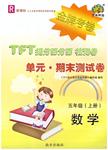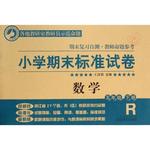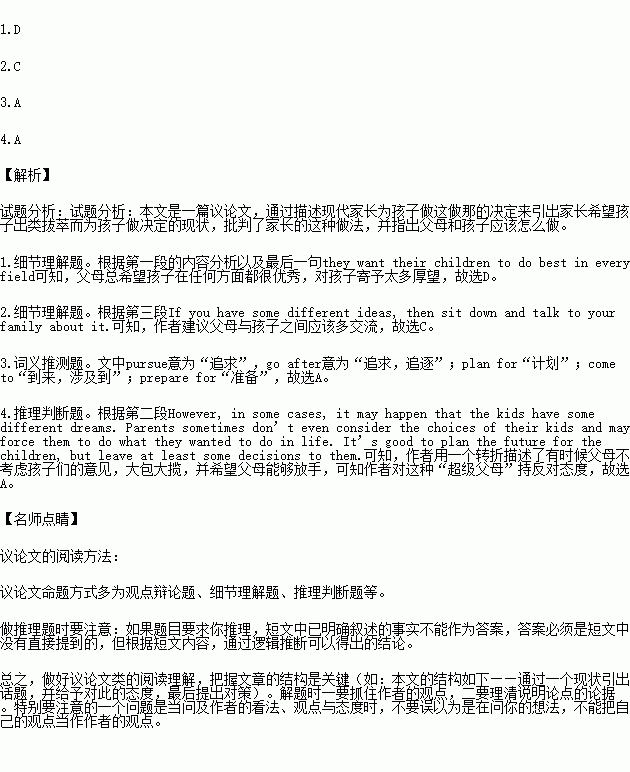题目内容
At heart, parents always wish the best for their children, and they work hard for that. Nowadays, we see parents deciding the schools for their little ones before the baby is even born. Once kids starts going to school, some parents want to have a time-to-time update(最新的情况) of their kid’s activities. They want to come to their classroom every day, keep an eye on whom they talk to, know the friends they keep, start telling them how to do their jobs, and keep talking to them about everything under the sun. Besides, they send their kids to extra hobby classes, as they want their children to do best in every field.
When it comes to the education, super mum and dad have all the plans made for their children, and I am sure that they have come up with the best. So, try to fight for the dreams that your parents have seen for you. However, in some cases, it may happen that the kids have some different dreams. Parents sometimes don’t even consider the choices of their kids and may force them to do what they wanted to do in life. It’s good to plan the future for the children, but leave at least some decisions to them.
So what should the children do? First, hear out all the plans that your parents have made for you. If you have some different ideas, then sit down and talk to your family about it. Be patient and respect their decisions, but put your plan forth, and make them understand what you want to do and why. Many times, you don’t know the difficulties that you may have to face while pursuing your dreams. Ask your parents for suggestions, which will make them feel good and involved. That way, they may support you if you are going on the right path.
1.The parents described in Paragraph 1 ________.
A. have a good understanding of their children
B. worry a lot about their children
C. take part in activities with their children
D. expect too much from their children
2.About educational plans, the writer advises ________.
A. children to do as they are told
B. children not to listen to their parents
C. children to communicate with their parents
D. children not to follow their parents’ suggestions
3.The underlined word “pursuing” in Paragraph 3 is closest in meaning to “________”.
A. going afterB. planning forC. coming toD. preparing for
4.What’s the writer’s attitude towards these super parents’ behaviors?
A. He is against them.
B. He is doubtful of them.
C. He doesn’t care about them.
D. He supports them.
 提分百分百检测卷单元期末测试卷系列答案
提分百分百检测卷单元期末测试卷系列答案 小学期末标准试卷系列答案
小学期末标准试卷系列答案
